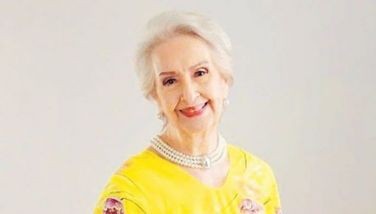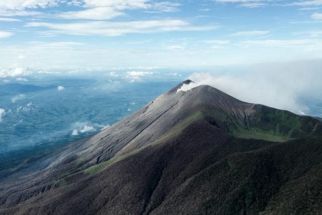RP assumes presidency of UN Security Council
May 29, 2004 | 12:00am
WASHINGTON — For the first time in decades, the Philippines will assume the presidency of the United Nations Security Council.
In a statement from New York, Ambassador Lauro Baja Jr, Philippine permanent representative to the United Nations, said the country’s elevation to the Security Council presidency on June 1 places the Philippines "on the political radar screen" of the organization’s 191 member states.
"When we take our turn as president, we will project and promote the image of the Philippines as a strong republic," he said.
Elmer Cato, spokesman of the Philippine mission at the UN headquarters in New York, said the country had been president of the Security Council at least three times before, in 1957, 1963 and 1980.
The Security Council is considered the most powerful body in the UN because it is the only one whose decisions are enforceable and binding among the member countries.
Under the UN Charter, the Council is responsible for the maintainance of international peace and security.
The council has five permanent members — Britain, China, France, Russia and the United States — and 10 members, the so-called tourists, elected five at a time every 12 months for two-year terms. Beginning their two-year terms on Jan. 1, 2004 were Algeria, Benin, Brazil, the Philippines and Romania.
The presidency of the council rotates monthly, according to the alphabetical listing of its member states. The Philippines will take over the presidency from Pakistan and will be succeeded in July by Romania. It will assume the position again in 2005.
The most important issue that the council is expected to take up in June is the recently submitted US blueprint for post-occupation Iraq.
The plan seeks to hand power over to an interim Iraqi government on June 30. But it doesn’t address how much control the government will have over foreign troops in Iraq. The omission is likely to lead to intense negotiations with critics of the Iraqi war, such as France and Germany, who want the interim government to decide on security issues.
Apart from the usual Middle East concerns, also expected to be the focus of discussion are hotspots like Haiti, Cyprus, Liberia and Sudan, the International Criminal Tribunals on Yugoslavia and Rwanda, and the involvement of civilians in armed conflict.
Baja described the country’s participation during its five months in the Council as "assertive, competitive and substantive."
"We have defined our role and established our identity in the Security Council. We were in the forefront in the negotiations for the revitalization of the Counter Terrorism Committee and the Sanctions Committee on al-Qaeda and the Taliban," he said.
For most of the presidency, Baja, as the permanent representative, will preside over the formal and informal meetings of the Security Council, while Foreign Affairs Secretary Delia Albert is expected to preside over an open thematic debate on June 22.
"We will have as our theme Civil Society Participation in Post-Conflict Peace Building, where the proposal of House Speaker Jose de Venecia on the role of the religious sector in conflict prevention and post-conflict resolution could be further considered," Baja said.
He said that when discussions drag and drift or when negotiations become heated or get bogged down, he plans to "inject wit and humor into the situation", a technique he learned from the late Gen. Carlos P. Romulo, the first Asian president of the United Nations General Assembly. — With Marvin Sy
In a statement from New York, Ambassador Lauro Baja Jr, Philippine permanent representative to the United Nations, said the country’s elevation to the Security Council presidency on June 1 places the Philippines "on the political radar screen" of the organization’s 191 member states.
"When we take our turn as president, we will project and promote the image of the Philippines as a strong republic," he said.
Elmer Cato, spokesman of the Philippine mission at the UN headquarters in New York, said the country had been president of the Security Council at least three times before, in 1957, 1963 and 1980.
The Security Council is considered the most powerful body in the UN because it is the only one whose decisions are enforceable and binding among the member countries.
Under the UN Charter, the Council is responsible for the maintainance of international peace and security.
The council has five permanent members — Britain, China, France, Russia and the United States — and 10 members, the so-called tourists, elected five at a time every 12 months for two-year terms. Beginning their two-year terms on Jan. 1, 2004 were Algeria, Benin, Brazil, the Philippines and Romania.
The presidency of the council rotates monthly, according to the alphabetical listing of its member states. The Philippines will take over the presidency from Pakistan and will be succeeded in July by Romania. It will assume the position again in 2005.
The most important issue that the council is expected to take up in June is the recently submitted US blueprint for post-occupation Iraq.
The plan seeks to hand power over to an interim Iraqi government on June 30. But it doesn’t address how much control the government will have over foreign troops in Iraq. The omission is likely to lead to intense negotiations with critics of the Iraqi war, such as France and Germany, who want the interim government to decide on security issues.
Apart from the usual Middle East concerns, also expected to be the focus of discussion are hotspots like Haiti, Cyprus, Liberia and Sudan, the International Criminal Tribunals on Yugoslavia and Rwanda, and the involvement of civilians in armed conflict.
Baja described the country’s participation during its five months in the Council as "assertive, competitive and substantive."
"We have defined our role and established our identity in the Security Council. We were in the forefront in the negotiations for the revitalization of the Counter Terrorism Committee and the Sanctions Committee on al-Qaeda and the Taliban," he said.
For most of the presidency, Baja, as the permanent representative, will preside over the formal and informal meetings of the Security Council, while Foreign Affairs Secretary Delia Albert is expected to preside over an open thematic debate on June 22.
"We will have as our theme Civil Society Participation in Post-Conflict Peace Building, where the proposal of House Speaker Jose de Venecia on the role of the religious sector in conflict prevention and post-conflict resolution could be further considered," Baja said.
He said that when discussions drag and drift or when negotiations become heated or get bogged down, he plans to "inject wit and humor into the situation", a technique he learned from the late Gen. Carlos P. Romulo, the first Asian president of the United Nations General Assembly. — With Marvin Sy
BrandSpace Articles
<
>
- Latest
- Trending
Trending
Latest
Trending
Latest
Recommended






























